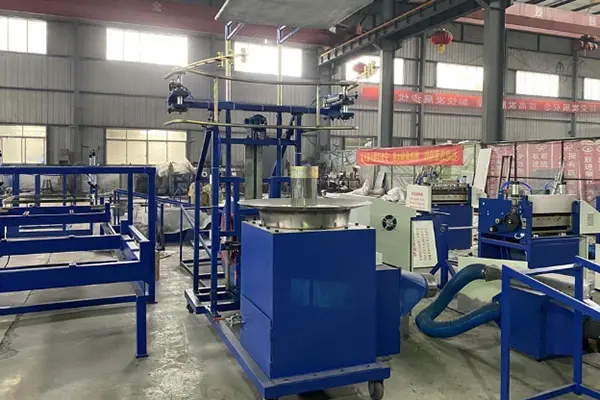Electric FIBC Bag Washers: A Comprehensive Guide
Flexible Intermediate Bulk Containers (FIBCs), often referred to as big bags or bulk bags, are widely used in various industries for storing and transporting bulk materials. After use, these bags can become contaminated with residual products, dust, and debris. To ensure hygiene, safety, and environmental compliance, thorough cleaning is essential.
The Role of Electric FIBC Bag Washers
Electric FIBC bag washers are specialized machines designed to efficiently clean and sanitize these bags. They utilize a combination of mechanical action, water, and detergents to remove contaminants, leaving the bags clean and ready for reuse.
Key Components of an Electric FIBC Bag Washer
- Washing Chamber: A robust chamber where the FIBC bag is placed for cleaning.
- Water Supply System: Provides a consistent supply of water, often heated for enhanced cleaning.
- Detergent Dispensing System: Delivers precise amounts of detergent to the washing chamber.
- Mechanical Agitation System: Uses rotating arms or brushes to scrub the bag’s interior and exterior.
- Drainage System: Efficiently removes wastewater and debris.
- Drying System: This can include forced-air drying or heat drying to ensure complete dryness.
- Control Panel: Manages the entire washing process, including cycle duration, water temperature, and detergent dosage.
Benefits of Using Electric FIBC Bag Washers
- Improved Hygiene: Thorough cleaning eliminates contaminants, reducing the risk of cross-contamination.
- Increased Bag Lifespan: Proper cleaning extends the service life of FIBC bags.
- Enhanced Safety: Clean bags reduce the risk of accidents and injuries.
- Environmental Compliance: Adherence to environmental regulations by minimizing waste and pollution.
- Cost Savings: Reduced disposal costs and increased bag reuse.
Factors to Consider When Choosing an Electric FIBC Bag Washer
- Bag Size and Capacity: Ensure the washer can accommodate the dimensions and weight of your bags.
- Cleaning Intensity: Consider the level of contamination and the required cleaning intensity.
- Water Consumption: Evaluate the water efficiency of the washer to minimize environmental impact and operational costs.
- Energy Efficiency: Choose a washer with energy-efficient components to reduce energy consumption.
- Maintenance Requirements: Consider the ease of maintenance and the availability of spare parts.
Conclusion
Electric FIBC bag washers are indispensable tools for maintaining hygiene and extending the lifespan of these essential containers. By investing in a reliable and efficient washer, businesses can optimize their operations and contribute to a cleaner and more sustainable future.
Post time: 11月-21-2024


